 W
WAkhand Bharat, also known as Akhand Hindustan is an irredentist term literally meaning Undivided India. It posits that modern-day India, Pakistan, Bangladesh, Nepal, Sri Lanka, and Bhutan are one nation. Afghanistan and Myanmar are often partially included in as well.
 W
WThe All-Russian nation, also known as the pan-Russian nation or the triune Russian nation is an Imperial Russian and Russian irredentist ideology which sees the Russian nation as comprising the three sub-nations Great Russians, Little Russians and White Russians, which include modern East Slavs, rather than only modern Russia and ethnic Russians.
 W
WAmericanism is a set of United States patriotic values aimed at creating a collective American identity, and can be defined as "an articulation of the nation's rightful place in the world, a set of traditions, a political language, and a cultural style imbued with political meaning". According to the American Legion, a U.S. veterans' organization, Americanism is an ideology, or belief in devotion, loyalty, or allegiance to the United States of America, or to its flag, traditions, customs, culture, symbols, institutions, or form of government. In the words of Theodore Roosevelt, "Americanism is a question of spirit, conviction, and purpose, not of creed or birthplace."
 W
WAnti-capitalism is a political ideology and movement encompassing a variety of attitudes and ideas that oppose capitalism. In this sense, anti-capitalists are those who wish to replace capitalism with another type of economic system, usually some form of socialism.
 W
WAn Australophile is one who appreciates or expresses love of Australian culture, the Australian people, Australian history or all things Australian in general. An Australophile may extend to someone who is born outside Australia and the definition is not limited to an Australian itself. The concept of Australophilia or Ozophilia is opposed to Australophobia, which is the dislike or fear of Australia and its cultural aspects.
 W
WThe Victim Theory, encapsulated in the slogan "Austria – the Nazis' first victim", was the ideological basis for Austria under allied occupation (1945–1955) and in the Second Austrian Republic until the 1980s. According to the founders of the Second Austrian Republic, the 1938 Anschluss was an act of military aggression by the Third Reich. Austrian statehood had been interrupted and therefore the newly revived Austria of 1945 could not and should not be considered responsible for the Nazis' crimes in any way. The "victim theory" which was formed by 1949 insisted that all of the Austrians, including those who strongly supported Hitler, had been unwilling victims of the Nazi regime and were therefore not responsible for its crimes.
 W
WBa'athism is an Arab nationalist ideology which promotes the development and creation of a unified Arab state through the leadership of a vanguard party over a progressive revolutionary government. The ideology is officially based on the theories of the Syrian intellectuals Michel Aflaq, Zaki al-Arsuzi, and Salah al-Din al-Bitar. Ba'athist leaders of the modern era include the former leader of Iraq, Saddam Hussein, and the President of Syria, Bashar al-Assad.
 W
WClerico-nationalism was a right-wing ideology current in Quebec from the years after World War I until the end of the 1950s,. Clerico-nationalism was a traditionalist, religious form of French Canadian nationalism focused on the Roman Catholic Church. In France, a similar ideology was referred to as National Catholicism.
 W
WCommunitarianism is a philosophy that emphasizes the connection between the individual and the community. Its overriding philosophy is based upon the belief that a person's social identity and personality are largely molded by community relationships, with a smaller degree of development being placed on individualism. Although the community might be a family, communitarianism usually is understood, in the wider, philosophical sense, as a collection of interactions, among a community of people in a given place, or among a community who share an interest or who share a history. Communitarianism usually opposes extreme individualism and disagrees with extreme laissez-faire policies that neglect the stability of the overall community.
 W
WThe conservative wave, or blue tide, is a right-wing political phenomenon that emerged in the mid-2010s in Latin America as a direct reaction to the pink tide.
 W
WDawronoye is a secular, leftist, nationalist movement among the Assyrian people. Ideologically characterized by progressive ideas and including socialist elements, its founding roots can be traced to the late 1980s in the town of Midyat in Turkey. The modern manifestation of the movement is controversial among Assyrian organizations worldwide, particularly due to its ties to the militant Kurdistan Workers' Party (PKK) and the Democratic Union Party (PYD). The movement is also controversial for its alleged role in human rights abuses against Assyrians in Syria, often allegedly under the orders of the previously mentioned organizations.
 W
WWhile Marxists propose replacing the bourgeois state with a proletarian semi-state through revolution, which would eventually wither away, anarchists warn that the state must be abolished along with capitalism. Nonetheless, the desired end results, a stateless, communal society, are the same.
 W
WEuro-Slavism, also spelled Euroslavism, is a political concept that evolved from pan-Slavism. It aims to solve problems of Slavic peoples within the European Union. Euroslavists promote cooperation and unity among Slavic peoples, which can be achieved through European integration.
 W
WFascism is a form of far-right, authoritarian ultranationalism characterized by dictatorial power, forcible suppression of opposition, and strong regimentation of society and of the economy, which came to prominence in early 20th-century Europe. The first fascist movements emerged in Italy during World War I, before spreading to other European countries. Opposed to liberalism, democracy, Marxism, and anarchism, fascism is placed on the far right within the traditional left–right spectrum.
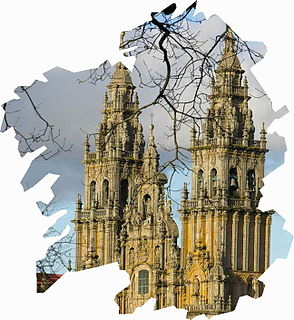 W
WGalicianism is a regionalist political movement in Galicia.
 W
WThe Harmonious Society is a socioeconomic concept in China that is recognized as a response to the increasing alleged social injustice and inequality emerging in mainland Chinese society as a result of unchecked economic growth, which has led to social conflict. The governing philosophy has therefore shifted around economic growth to overall societal balance and harmony. Along with a moderately prosperous society, it was set to be one of the national goals for the ruling vanguard Communist Party.
 W
WIlminism, frequently translated as the One-People Principle, was the political ideology of South Korea under its first President, Syngman Rhee. The Ilmin principle has been likened by contemporary scholars to the Nazi idea of the Herrenvolk, and was part of an effort to consolidate a united and obedient citizenry around Rhee's strong central leadership through appeals to nationalism and ethnic supremacy.
 W
WIntegral humanism was a set of concepts drafted by Deendayal Upadhyaya as a political program and adopted in 1965 as the official doctrine of the Jan Sangh and later BJP. Upadhyaya borrowed the Gandhian principles such as sarvodaya, swadeshi (domestic), and Gram Swaraj and these principles were appropriated selectively to give more importance to cultural-national values. These values were based on an individual's undisputed subservience to nation as a corporate entity. Richard Fox has characterised this as "ideological hijacking" and a "transplant" that was designed with a purpose to appropriate the authority that the Gandhian idioms had on Indian politics.
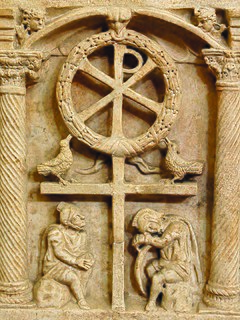 W
WIn politics, integralism, integrationism or integrism is the principle that the Catholic faith should be the basis of public law and public policy within civil society, wherever the preponderance of Catholics within that society makes this possible. Integralists uphold the 1864 definition of Pope Pius IX in Quanta cura that the religious neutrality of the civil power cannot be embraced as an ideal situation and the doctrine of Leo XIII in Immortale Dei on the religious obligations of states. In December 1965, the Second Vatican Council approved and Pope Paul VI promulgated the document Dignitatis humanae–the Council's "Declaration on Religious Freedom"–which states that it "leaves untouched traditional Catholic doctrine on the moral duty of men and societies toward the true religion and toward the one Church of Christ" while simultaneously declaring "that the human person has a right to religious freedom," a move that some traditionalists such as Archbishop Marcel Lefebvre, the founder of the Society of St. Pius X, have argued is in contradiction to previous doctrinal pronouncements. Integralists therefore do not accept the Second Vatican Council's perceived repudiation of civilly established Catholicism.
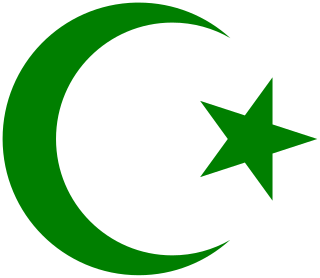 W
WIslamism definition refers to a "broad set of political ideologies that utilize and draw inspiration from Islamic symbols and traditions in pursuit of a sociopolitical objective."
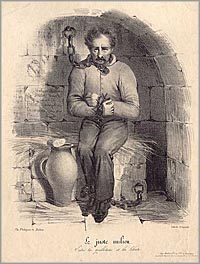 W
WJuste milieu is a term that has been used to describe centrist political philosophies that try to find a balance between extremes, and artistic forms that try to find a middle ground between the traditional and the modern. In the political sense it is most associated with the French July Monarchy (1830–1848), which ostensibly tried to strike a balance between autocracy and anarchy. The term has been used in both a positive and negative sense.
 W
WKemalism, also known as Atatürkism, or The Six Arrows, is the founding ideology of the Republic of Turkey. Kemalism, as it was implemented by Mustafa Kemal Atatürk, was defined by sweeping political, social, cultural and religious reforms designed to separate the new Turkish state from its Ottoman predecessor and embrace a modernized lifestyle, including the establishment of secularism, and state support of the sciences and free education, many of which were first introduced to Turkey during Atatürk's presidency in his reforms.
 W
WLesbian, gay, bisexual, and transgender (LGBT) movements are social movements that advocate for LGBT people in society. Social movements may focus on equal rights, such as the 2000s movement for same-sex marriage, or they may focus on liberation, as in the gay liberation movement of the 1960s and 1970s. Earlier movements focused on self-help and self-acceptance, such as the homophile movement of the 1950s. Although there is not a primary or an overarching central organization that represents all LGBT people and their interests, numerous LGBT rights organizations are active worldwide. The earliest organizations to support LGBT rights were formed in the early 20th century.
 W
WLiberté, égalité, fraternité, French for "liberty, equality, fraternity", is the national motto of France and the Republic of Haiti, and is an example of a tripartite motto. Although it finds its origins in the French Revolution, it was then only one motto among others and was not institutionalized until the Third Republic at the end of the 19th century. Debates concerning the compatibility and order of the three terms began at the same time as the Revolution. It is also the motto of the Grand Oriente and the Grande Loge de France.
 W
WLimitarianism refers to several different types of ethical theories. Though Limitarianism applies differently to varied fields of study, what is always common is an examination of when it is proper, moral or ethical to interfere and intervene in the lives and freedoms of individuals, in order to benefit society as a whole. It sometimes presents as a principle of distributive justice in economic theories. Unlike encompassing systems of political and economic intervention, which seek to make dramatic changes to the social order, Limitarianism deals with specific instances and subjects, for which the necessity and justification of intervention may be examined. As its name implies, Limitarianism asks the question of how setting certain limits for human beings can lead to positive outcomes.
 W
WIn social studies, a political ideology is a certain set of ethical ideals, principles, doctrines, myths or symbols of a social movement, institution, class or large group that explains how society should work and offers some political and cultural blueprint for a certain social order. A political ideology largely concerns itself with how to allocate power and to what ends it should be used. Some political parties follow a certain ideology very closely while others may take broad inspiration from a group of related ideologies without specifically embracing any one of them. The popularity of an ideology is in part due to the influence of moral entrepreneurs, who sometimes act in their own interests. Political ideologies have two dimensions: (1) goals: how society should be organized; and (2) methods: the most appropriate way to achieve this goal.
 W
WLoyalism, in the United Kingdom, its overseas territories and its former colonies, refers to the allegiance to the British crown or the United Kingdom. In North America, the most common usage of the term refers to loyalty to the British Crown, notably with the loyalists opponents of the American Revolution, and United Empire Loyalists who moved to other colonies in British North America after the revolution.
 W
WMacedonian nationalism is a general grouping of nationalist ideas and concepts among ethnic Macedonians that were first formed in the late 19th century among separatists seeking the autonomy of the region of Macedonia from the Ottoman Empire. The idea evolved during the early 20th century alongside the first expressions of ethnic nationalism among the Slavs of Macedonia. The separate Macedonian nation gained recognition after World War II when the "Socialist Republic of Macedonia" was created as part of Yugoslavia. Afterwards the Macedonian historiography has established historical links between the ethnic Macedonians and events and Bulgarian figures from the Middle Ages up to the 20th century. Following the independence of the Republic of Macedonia in the late 20th century, issues of Macedonian national identity have become contested by the country's neighbours, as some adherents to aggressive Macedonian nationalism, called Macedonism, hold more extreme beliefs such as an unbroken continuity between ancient Macedonians, and modern ethnic Macedonians, and views connected to the irredentist concept of a United Macedonia, which involves territorial claims on a large portion of Greece, along with smaller regions of Albania, Bulgaria, Kosovo and Serbia.
 W
WMuscular liberalism is a form of liberalism advocated by former British Prime Minister David Cameron that describes his policy towards state multiculturalism.
 W
WNasserism is a socialist Arab nationalist political ideology based on the thinking of Gamal Abdel Nasser, one of the two principal leaders of the 1952 July movement and Egypt's second President. Spanning the domestic and international spheres, it combines elements of Arab socialism, republicanism, nationalism, anti-imperialism, developing world solidarity and international non-alignment.
 W
WNational Bolshevism, whose supporters are known as National Bolsheviks or NazBols, is a radical political movement that combines extreme nationalism and communism.
 W
WNational Catholicism was part of the ideological identity of Francoism, the political system with which dictator Francisco Franco governed Spain between 1939 and 1975. Its most visible manifestation was the hegemony that the Catholic Church had in all aspects of public and private life. As a symbol of the ideological divisions within Francoism, it can be contrasted to National syndicalism, an essential component of the ideology and political practice of the Falangists.
 W
WNeo-Ottomanism is an imperialist Turkish political ideology that, in its broadest sense, promotes greater political engagement of the Republic of Turkey within regions formerly under the rule of the Ottoman Empire, the predecessor state that covered the territory of modern Turkey among others.
 W
WNihilism is a philosophy, or family of views within philosophy, expressing negation towards general aspects of life that are widely accepted within humanity as objectively real, such as knowledge, existence, and the meaning of life. Different nihilist positions hold variously that human values are baseless, that life is meaningless, that knowledge is impossible, or that some set of entities do not exist, are meaningless, or pointless.
 W
WThe Old Left was the pre-1960s left-wing in the Western world, the earlier leftist or Marxist movements that had often taken a more vanguardist approach to social justice and focused mostly on labor unionization and questions of social class in the West.
 W
WPan-Africanism is a worldwide movement that aims to encourage and strengthen bonds of solidarity between all indigenous and diaspora ethnic groups of African descent. Based on a common goal dating back to the Atlantic slave trade, the movement extends beyond continental Africans with a substantial support base among the African diaspora in the Americas and Europe.
 W
WPan-Islamism is a political ideology advocating the unity of Muslims under one Islamic country or state – often a caliphate – or an international organization with Islamic principles. Pan-Islamism differentiates itself from pan-nationalistic ideologies, for example Pan-Arabism, by seeing the ummah as the focus of allegiance and mobilization, excluding ethnicity and race as primary unifying factors. It portrays Islam as being anti-racist and against anything that divides Muslims based on ethnicity.
 W
WPan-Slavism, a movement which crystallized in the mid-19th century, is the political ideology concerned with the advancement of integrity and unity for the Slavic peoples. Its main impact occurred in the Balkans, where non-Slavic empires had ruled the South Slavs for centuries. These were mainly the Byzantine Empire, Austria-Hungary, the Ottoman Empire, and Venice.
 W
WThe Pink tide, or turn to the left, was a political wave and perception of a turn towards left-wing governments in Latin American democracies moving away from the neoliberal economic model at the start of the 21st century. As a term, both phrases are used in contemporary 21st-century political analysis in the media and elsewhere to refer to a move toward more progressive economic or social policies in Latin America.
 W
WPolitical ideologies in the United States include various ideologies and ideological demographics in the United States. Citizens in the United States generally classify themselves as adherent to positions along the left–right political spectrum as either liberal, progressive, moderate, or conservative. Modern American liberalism aims at the preservation and extension of human, social and civil rights as well as the government guaranteed provision of positive rights. It combines social progressivism and to some extent ordoliberalism and is highly similar to European social liberalism. American conservatism commonly refers to a combination of economic liberalism and social conservatism. It aims at protecting the concepts of small government and individual liberty while promoting traditional values on some social issues.
 W
WPopulism refers to a range of political stances that emphasise the idea of "the people" and often juxtapose this group against "the elite". The term dates back to the Populares, who were a political faction in the late Roman Republic who favoured the cause of the plebeians, and has been applied to various politicians, parties, and movements since that time, although it has rarely been chosen as a self-description. Within political science and other social sciences, several different definitions of populism have been employed, with some scholars proposing that the term be rejected altogether.
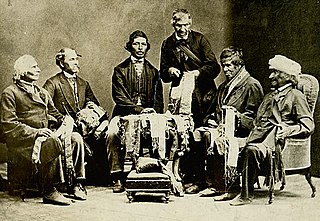 W
WWhile Karl Marx and Friedrich Engels defined communism as a political movement, there were already similar ideas in the past which one could call communist experiments. Marx himself saw primitive communism as the original hunter-gatherer state of humankind. Marx theorized that only after humanity was capable of producing surplus did private property develop.
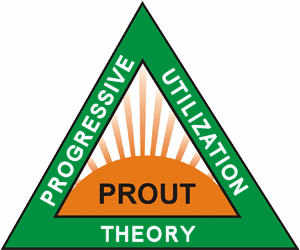 W
WProgressive utilization theory (PROUT) is a socioeconomic and political theory created by the Indian philosopher and spiritual leader Prabhat Ranjan Sarkar. Sarkar conceived of PROUT in 1959. Supporters of PROUT (Proutists) claim that the theory exposes and overcomes the limitations of both capitalism and communism. It aims to be economically progressive and improve social development. The theory is in line with Sarkar's Neohumanist values which aim to provide "proper care" to every being on the planet, including humans, animals and plants.
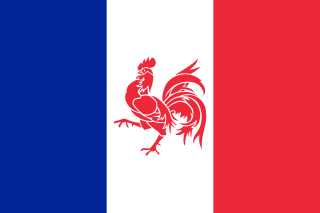 W
WRattachism or Reunionism (Réunionisme) is a minor political ideology which calls for the French-speaking part of Belgium or Wallonia to secede from Belgium and become part of France. Brussels, which is majority French-speaking but enclaved in Flanders, may be included within this ideology as may the six Flemish municipalities with language facilities for French-speakers around Brussels. It can be considered a French-speaking equivalent of Orangism or Grootneerlandisme in Flanders.
 W
WReactionary modernism is a term first coined by Jeffrey Herf in the 1980s, to describe the mixture of "great enthusiasm for modern technology with a rejection of the Enlightenment and the values and institutions of liberal democracy" which was characteristic of the German Conservative Revolutionary movement and Nazism. In turn, this ideology of reactionary modernism was closely linked to the original, positive view of the Sonderweg, which saw Germany as the great Central European power neither of the West nor of the East.
 W
WSerbian–Montenegrin unionism is a political ideology which arose during Montenegro's affiliation with the Federal Republic of Yugoslavia and the State Union of Serbia and Montenegro. It advocates Montenegro being in a federal political union with Serbia and opposes Montenegrin independence and separation from Serbia. The relationship between Serbs and Montenegrins is generally identified as being the most amicable of all the peoples of the former Yugoslavia.
 W
WThe socialist mode of production, also referred to as the communist mode of production, the lower-stage of communism or simply socialism as Karl Marx and Friedrich Engels used the terms communism and socialism interchangeably, is a specific historical phase of economic development and its corresponding set of social relations that emerge from capitalism in the schema of historical materialism within Marxist theory. The Marxist definition of socialism is that of an economic transition. In this transition, the sole criterion for production is use-value, therefore the law of value no longer directs economic activity. Marxist production for use is coordinated through conscious economic planning. Distribution of products is based on the principle of "to each according to his contribution". The social relations of socialism are characterized by the proletariat effectively controlling the means of production, either through cooperative enterprises or by public ownership or private artisanal tools and self-management. Surplus value goes to the working class and hence society as a whole.
 W
WTechno-progressivism or tech-progressivism is a stance of active support for the convergence of technological change and social change. Techno-progressives argue that technological developments can be profoundly empowering and emancipatory when they are regulated by legitimate democratic and accountable authorities to ensure that their costs, risks and benefits are all fairly shared by the actual stakeholders to those developments. One of the first mentions of techno-progressivism appeared within extropian jargon in 1999 as the removal of "all political, cultural, biological, and psychological limits to self-actualization and self-realization".
 W
WThe policy of exporting the Islamic Revolution is a strategy in Iran's foreign policy that believes in exporting the teachings of the Iranian Revolution of 1979 to achieve similar examples in Islamic and even non-Islamic countries. This policy has been explicitly and at various times announced by Ruhollah Khomeini, the founder of the Islamic Republic of Iran. One of the basic slogans of the Islamic Revolution of Iran, which has won based on religious ideology, is the export of the revolution. Accordingly, the purpose is exporting the revolution as a culture, ideology and an intellectual and epistemological method.
 W
WTranshumanist politics constitutes a group of political ideologies that generally express the belief in improving human individuals through science and technology.
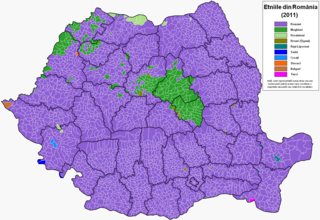 W
WTransylvanianism is a political and cultural movement manifested within both the Hungarian and the majority Romanian communities, which underlines the importance of historical acknowledgement and peaceful multi-ethnic existence in Transylvania.
 W
WThe two-nation theory is an ideology of religious nationalism which significantly influenced the Indian subcontinent following its independence from the British Empire. According to this theory, Muslims and Hindus are two separate nations, with their own customs, religion, and traditions; therefore, from social and moral points of view, Muslims should be able to have their own separate homeland outside of Hindu-majority India, in which Islam is the dominant religion, and be segregated from Hindus and other non-Muslims. The two-nation theory advocated by the All India Muslim League is the founding principle of the Pakistan Movement through the partition of India in 1947.